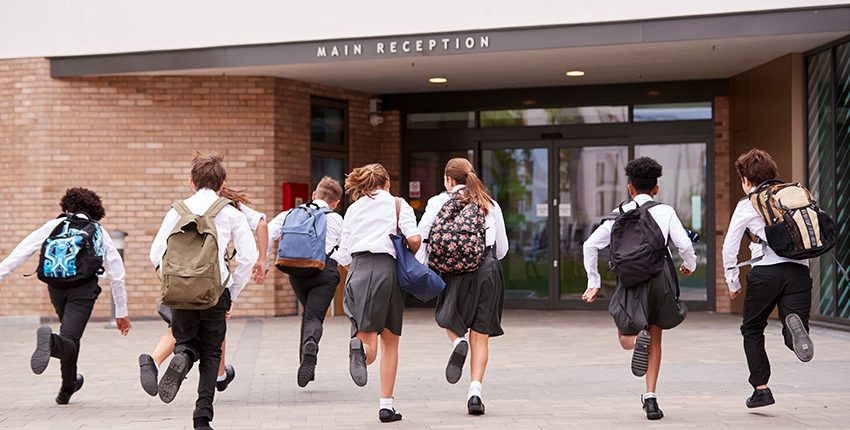By Laura Herman and Robyn Saffer, Thinking-Together About Parenting Teens.
Do you remember changing schools?
Transitioning schools is a big milestone in both yours and your child’s life.
Do you remember what it was like for you when you moved from Primary School to Secondary School? Perhaps you couldn’t wait to start or perhaps you were scared? Do you remember how big the new buildings were compared to your Primary School? Do you remember how small you felt and intimidated you might have been by the older pupils?
It is important that we recognise how we remember our own experiences will impact how we feel about our own child/children starting Senior School. They are not us and we need to give them a chance to have their own feelings and experience.
What’s it like for your child/children moving from primary to secondary school?
Lots of young people are ready to leave their primary school, others will want to cling to the safety of the building, friends and teachers they know. Either way, almost all of them will have a mixture of excitement and nervousness about starting their new school. Just because they might be tall and look big, doesn’t mean they are ready emotionally.
There are lots of things to look forward to: making new friends, more facilities, more independence, more co-curricular activities, more opportunities.
Equally it is normal for them to be worried about things such as: staying in touch with their old friends, will I know anyone in my new class, how much homework will I get, will I get lost, will I get in trouble for getting lost, will I get detentions, will there be bullies, will the teachers be tough, will I be able to do the work, will I make new friends, what if I forget my pe kit or pencil case, will people laugh at my new school bag, what happens at lunchtime?
When they start their new school, they will probably look as if they are ok whilst they are in school. When they get home, they will be exhausted and it is likely you will be at the receiving end of behaviour such as tears, anger, worries and grumpiness. It will take them a while to settle, probably at least a term. It is normal for friendships to change; many don’t stay close to all of the friends they previously knew. If you are very worried after a couple of weeks, do contact the school, otherwise try and ride the storm!
Remember schools are very experienced at understanding new pupils and helping them settle in.
Checklist: What can you do to help your child?
- Normalise your child’s feelings. Of course, they feel excited and nervous about moving from primary to secondary school, everyone will. Nobody will know their way around yet. Everyone will have similar worries to you/them.
- Do they know people starting their new school? If so, make sure they meet them during the holidays.
- If they don’t know anyone, can school tell you who else is in your area or share your number with another parent? Can anyone introduce you to someone (local Facebook Groups are a good place to ask).
- If you know someone who is starting the same school who doesn’t know anyone, can you reach out to them? It will make a big difference to them.
- Does your child want to arrange to meet someone on the way into school on the first day?
- They will need to be more organised for Secondary school. Help them to think about ways to do this e.g. print off timetables, get bags ready the night before.
- All of our kid’s routines go out of the window during the holidays. Try and use the last week of the holidays to return to some normality e.g. sleep and wake up times, meeting people, restrictions on screen time.
- Reassure them it is usual for them to chop and change friends in the first weeks of school whilst they discover who they do and don’t like.
- If you child struggles socially, they may need some guidance and to practice role play about how to approach and speak to people. An older sibling or a family friend might be able to help them.
- You and they will probably be swamped with information in the first few weeks of term. You can support them, by ensuring you have allowed time to read and digest any information you both have.
Sign up for more details about our parenting workshops.
Contact us to discuss providing a workshop in your school.
For helplines and support see: Getting Help
Follow us on Social Media:Facebook Thinking-Together About Parenting Teens Instagram thinking__together

